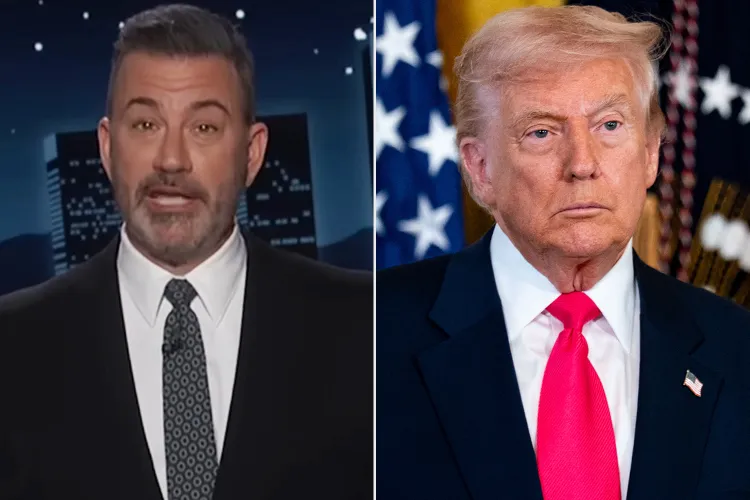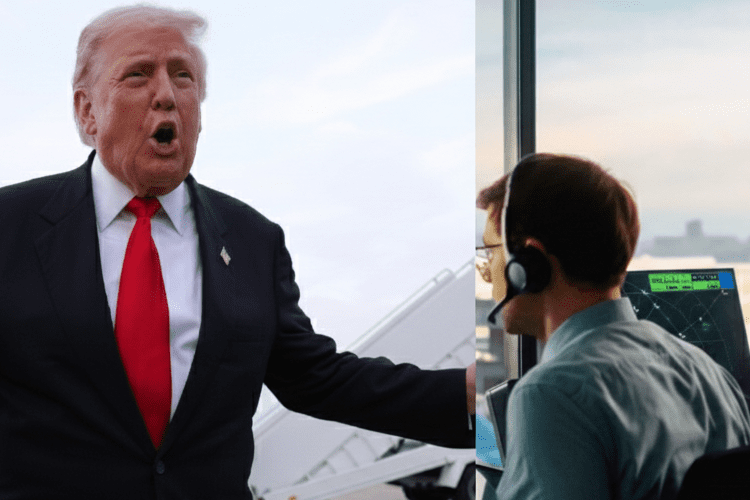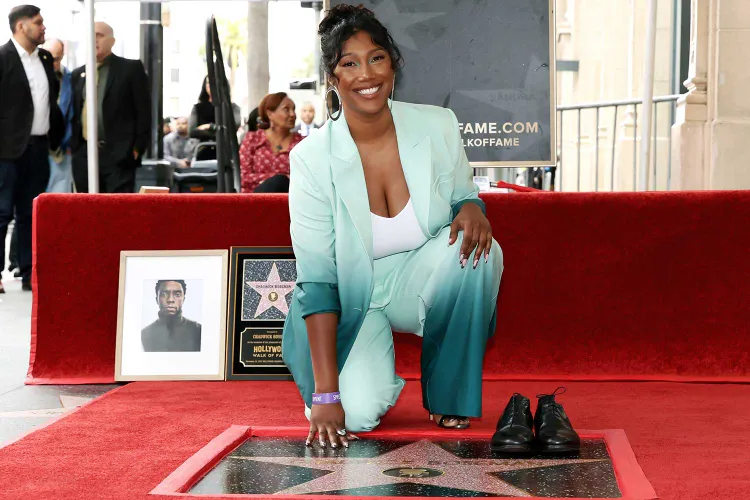Jimmy Kimmel Thanks Trump for “Watching Live” After Former President Calls for His Firing in Morning Social Media Rant
Jimmy Kimmel has never been one to sidestep political tension, especially when it involves his long-running, often one-sided feud with former President Donald Trump. But on Thursday, Nov. 20, the late-night host delivered one of his sharpest, most pointed responses yet — one wrapped not in anger, but in the kind of dry, effortless sarcasm that has become his trademark. And it all began with what Kimmel described as a familiar scene: waking up to another social media post from Trump calling for him to be removed from television.
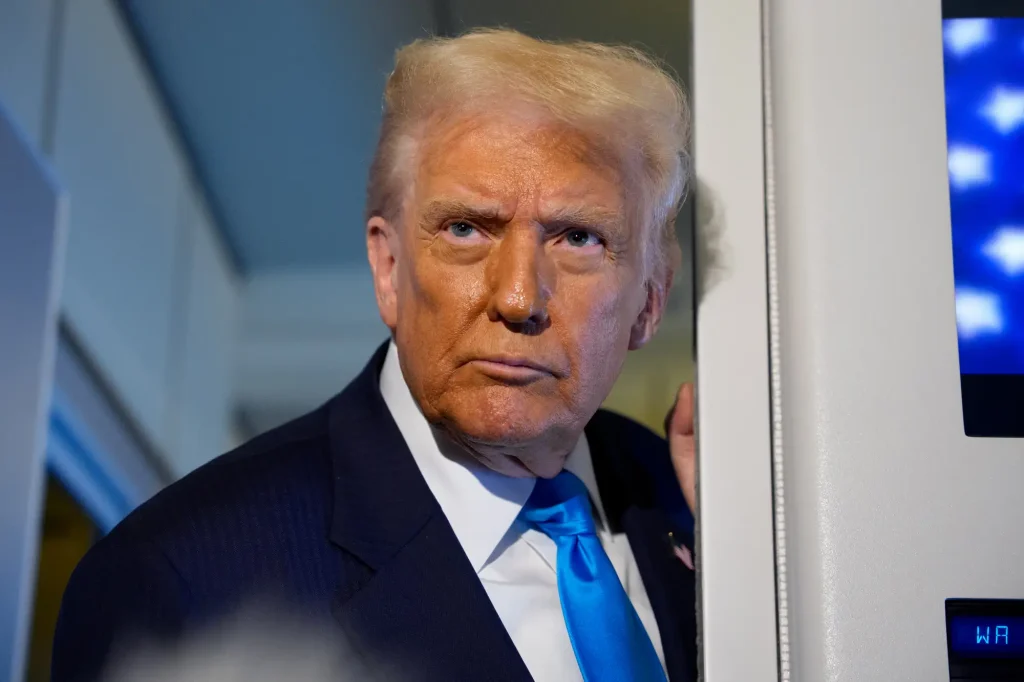
During his monologue on Jimmy Kimmel Live!, the host appeared amused rather than rattled, telling the audience that Trump had once again taken aim at him online. According to Kimmel, Trump’s latest complaint insisted that ABC should “fire” him — a refrain the former president has repeated several times over the years. But instead of escalating the confrontation, Kimmel leaned into humor, thanking Trump for tuning in, joking that viewers like him were exactly the reason the show remained on air. His delivery was smooth, quick, and cutting in that way only Kimmel can manage.
Trump’s history of criticizing late-night hosts stretches back to his presidency, when he frequently expressed frustration with comedians who mocked his policies, behavior, or public statements. Kimmel, along with Stephen Colbert, Seth Meyers, and others, often found themselves on the receiving end of those rants. But Kimmel never responded with anger; instead, he responded with jokes, using Trump’s comments as material. This latest exchange felt like a continuation of that pattern — a familiar dance between political criticism and comedic rebuttal.
This time, though, the timing made the moment especially striking. The former president’s post came early in the morning, long before Jimmy Kimmel Live! airs. Yet the message claimed Trump had watched Kimmel in real time and felt so irritated that he insisted the network should fire him. Kimmel seized on this contradiction, telling viewers that if Trump truly watched the show live, he must be tuning in past his usual bedtime. The audience erupted, sensing that Kimmel was in rare form — energetic, fearless, and fully leaning into the comedic opportunity.
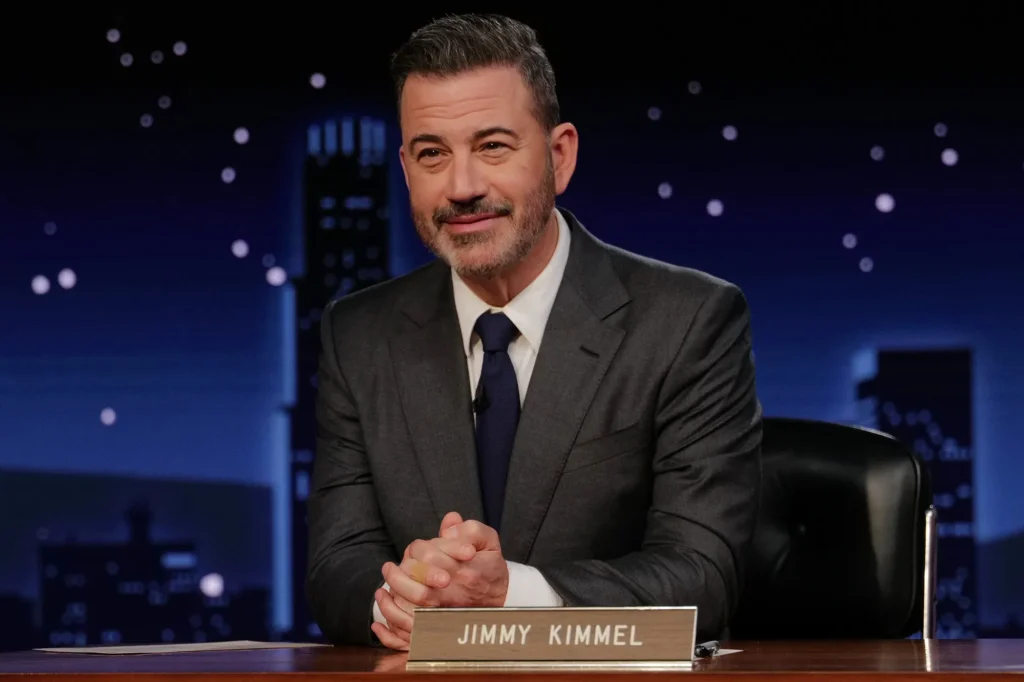
Kimmel then pointed out that Trump often claims not to watch shows or individuals he criticizes, yet his commentary frequently reveals an intimate awareness of what they said. “It’s viewers like you who keep us on the air,” Kimmel joked to the camera, directing his punchline directly at Trump as though the former president were watching from home. The remark tapped into a longstanding dynamic: Trump often boosts the visibility of the people he criticizes, drawing more attention to them by publicly attacking them.
Despite the humor, Kimmel’s comments reflected a deeper truth about the current media environment. Political figures and entertainers no longer occupy separate spheres — they intersect constantly, often in ways that blur the line between criticism and engagement. For Kimmel, who has increasingly used his platform to speak about social and political issues, exchanging barbs with a former president has almost become an expected part of his routine.
But even with that familiarity, Kimmel rarely misses the emotional undertone. He has long been a supporter of political transparency, public accountability, and social awareness. When Trump calls for a network to fire him, Kimmel doesn’t interpret it as simply a personal attack — he sees it as part of a broader pattern of political pressure on free expression. Still, rather than turning his monologue into a lecture, he delivers his point through humor, allowing his comedy to carry the weight of the moment without dampening its energy.
For Trump, the tension with late-night shows is not new. Throughout his presidency, he frequently complained about what he described as unfair or unfunny jokes, insisting that certain hosts should be “canceled” or that networks should enforce “equal time.” Those calls grew quieter after he left office, but moments like this show that the dynamic hasn’t completely faded. Trump still weighs in, and Kimmel still responds with precision and comedic instinct.
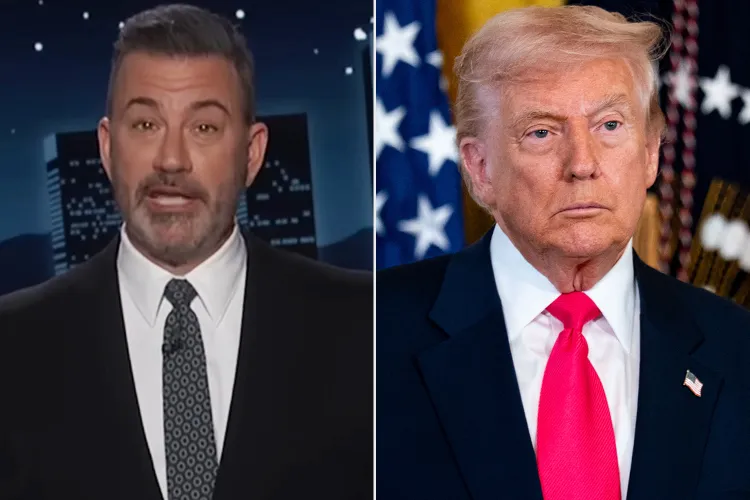
The audience’s reaction on Thursday night revealed how much this ongoing rivalry has become part of Kimmel’s identity as a host. When he cited Trump’s post, the crowd laughed knowingly — as though they anticipated the battle before Kimmel even finished the setup. At this point, the public sees their feud less as political warfare and more as a recurring comedic segment that writes itself. Kimmel simply acts as the narrator, guiding viewers through each chapter with wit and a touch of disbelief.
Yet behind the laughter, there is also a sense of cultural fatigue. Many viewers have grown accustomed to political conflict seeping into entertainment, often in ways that feel unavoidable. But Kimmel’s approach works because he refuses to let the negativity dominate the narrative. Instead, he transforms it into something lighter, more digestible — a joke, a punchline, a release. His response on Thursday night was another example of how he uses comedy not just to deflect criticism, but to reclaim control over the conversation.
Interestingly, Kimmel’s reaction also highlighted a paradox: by naming him publicly, Trump inadvertently raises his profile. Viewers who may not regularly watch Jimmy Kimmel Live! might tune in out of curiosity after hearing that Trump singled him out. Kimmel seemed fully aware of this irony — it’s why he looked into the camera with a playful grin when he said, “It’s viewers like you who keep us on the air.” It was a joke, yes, but also a subtle acknowledgment of how the media ecosystem actually works.
The feud also reveals the tone Kimmel has maintained over the years — one that mixes mockery with restraint. He doesn’t match Trump’s intensity; instead, he keeps his responses rooted in comedy. His humor refuses to escalate into hostility. It stays sharp but not hateful, direct but not inflammatory. That balance has enabled him to navigate countless political moments without alienating his audience or crossing lines that would violate network standards.
Trump’s latest message also fit into his broader pattern of lashing out at media personalities. Even out of office, he continues to use social media to shape narratives, assert dominance, or signal disapproval. Those posts draw attention — often intentionally — and create ripple effects across the media landscape. That’s why Kimmel’s decision to meet the moment with humor was so strategic. By laughing, by reframing the criticism as engagement, he minimizes its power.
Throughout his monologue, Kimmel never appeared rattled or defensive. Instead, he seemed almost energized — as though Trump’s message had given him fresh material. He joked that perhaps Trump was his most loyal viewer, noting that waking up to a post from him had become nearly routine. The audience laughed, recognizing the absurdity of a former president waking up early to criticize a late-night comedian.
Kimmel’s monologue also underscored something deeper: the evolving role of late-night television. While comedy shows were once primarily entertainment vehicles, they now play a significant part in shaping political discourse. Through jokes, satire, and commentary, hosts like Kimmel offer viewers a way to process political events with humor rather than despair. That’s precisely why Kimmel’s exchange with Trump resonated — it was a moment that blended politics and entertainment in a way that felt both familiar and fresh.
As he wrapped up the segment, Kimmel returned to his original message: gratitude. Gratitude for the viewers who tune in every night, gratitude for the team behind the show, and, with a mischievous smile, “gratitude” for Trump’s accidental loyalty as a viewer. It was a moment that reminded audiences that while political tension can be heavy, laughter remains a powerful counterbalance.
The ongoing clash between Kimmel and Trump may continue, but it is clear that Kimmel has found a tone that works — one that keeps the show funny, relevant, and grounded, even when the criticism comes from a figure as polarizing as a former president. His response on Thursday night wasn’t just a clapback; it was an example of comedic resilience, a masterclass in turning conflict into content.
In the end, the most memorable part of the monologue may have been Kimmel’s simple, deadpan delivery when he looked straight into the camera and thanked Trump. It was a moment that transcended politics, becoming something bigger — an illustration of how humor, when wielded with confidence, can diffuse tension, shift perspective, and remind viewers that even in the midst of heated political commentary, there is still room to laugh.
